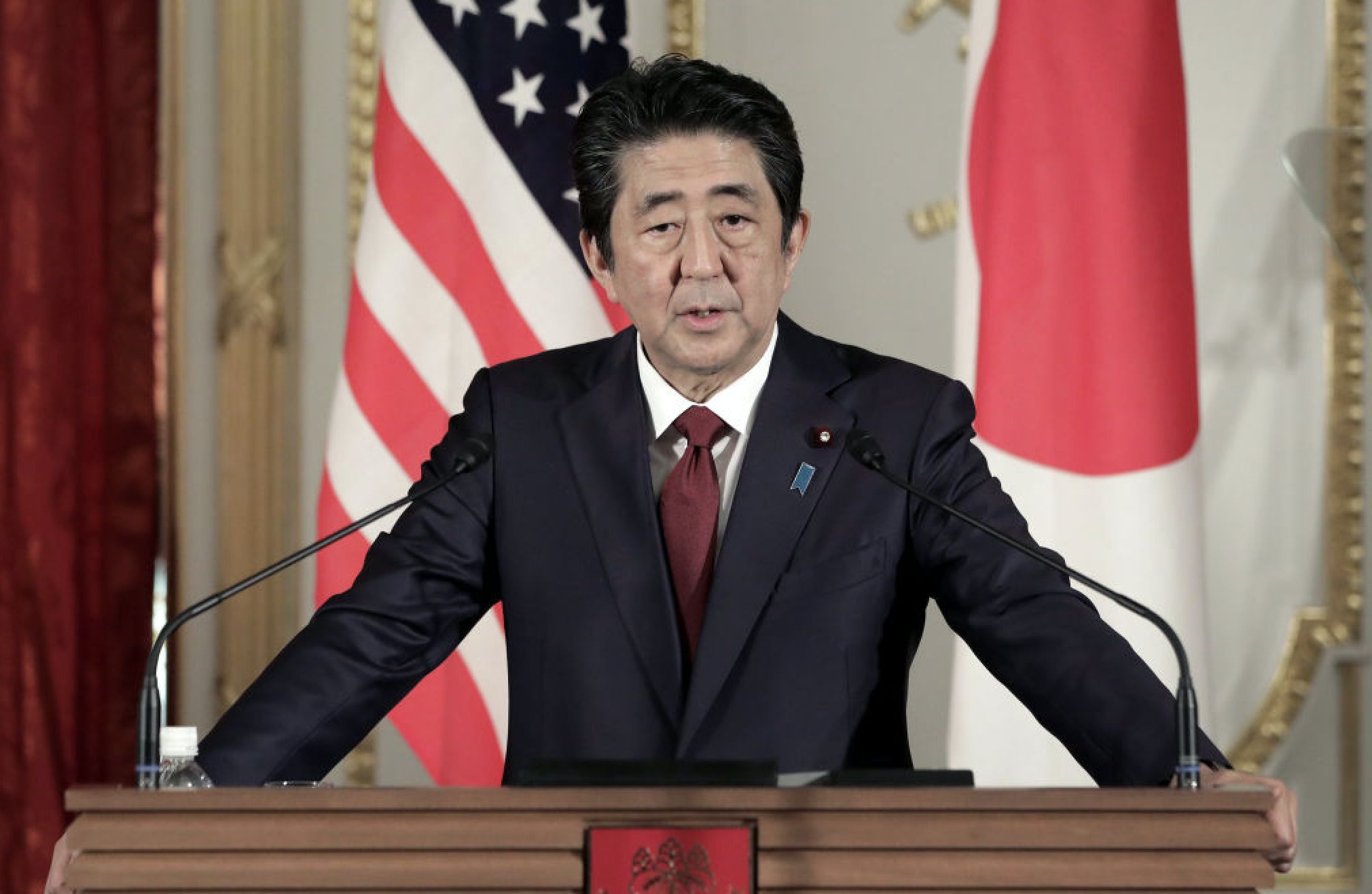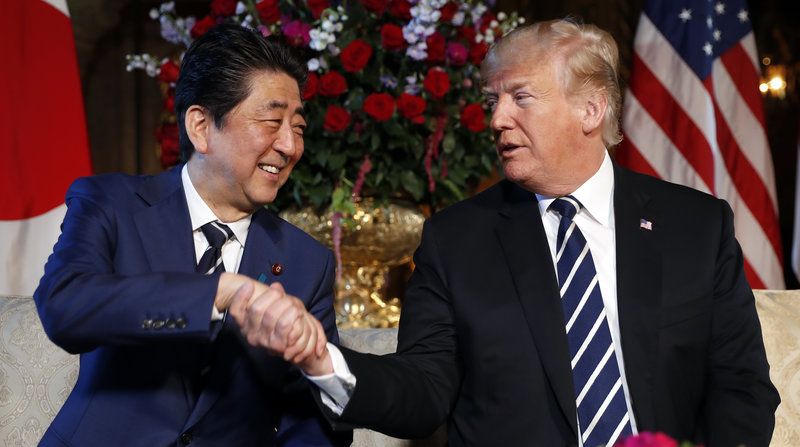Japan Becomes the Latest Country That’s Prepping to Fight World War 3 in Space
Article by Jasper Hamill January 20, 2020 (metro.co.uk)
• Currently, the idea of space warfare involves rival nations destroying or jamming each other’s satellites. Whilst this would knock out communications on the ground and potentially cause economic damage, it would not actually kill civilians on Earth. But U.S. intelligence agencies have said that both China and Russia would have ‘destructive’ space weapons within a few years that can interfere, disable or destroy satellites and spacecraft. Global commercial interests such as the British space trade association ‘UK Space’, who anticipate a lot of sophisticated technology going into orbit in the future, want “somebody out there who is going to protect the interests of all in space.”
• On January 20th, Japanese Prime Minister Shinzo Abe (pictured above) said in a policy speech marking the start of the 2020 parliamentary session that the ‘Space Domain Mission Unit’ will launch in April as part of Japan’s Air Self-Defense Force. Abe said that Japan’s space domain force will defend itself from cyberspace threats and protect its satellites, and ‘drastically bolster capability and system in order to secure superiority’ in those areas. The unit will cooperate with the Japan Aerospace Exploration Agency, and with the US Space Command. Abe has pushed for Japan’s Self-Defense Force to bolster cooperation and weapons compatibility with the US.
• Will Whitehorn, president of UK Space, advocates for the establishment of a UK space force to get ready to fight terrorists and wage war in the heavens. Industry leaders fear that terrorists and hostile nation-states will be able to wreak economic havoc by targeting communications satellites. Speaking at the UK Space Conference, Whitehorn said, “We are about to go through an industrial revolution in space. …We are at the stage where a lot of technologies have been developed …(and) a lot of the industrial processes or necessities that we will need are going to be …in that hostile environment in space.” “[W]e have to be able to defend ourselves in space. …”[A] time [is] coming when having a co-ordinated approach to space across all of our military is going to be important.”
The Space Domain Mission Unit will launch in April as part of Japan’s Air Self-Defense Force, Abe said in a policy speech marking the start of the year’s parliamentary session today. He said Japan must also defend itself from threats in cyberspace and protects its satellites. A number of nations are now developing space weapons, with concerns growing that China and Russia are seeking ways to interfere, disable or destroy spacecraft.
Japan will ‘drastically bolster capability and system in order to secure superiority’ in those areas, Abe said. The unit will cooperate with the US Space

Command that Trump established in August, as well as Japan’s space exploration agency, Japan Aerospace Exploration Agency. Abe has pushed for Japan’s Self-Defense Force to expand its international role and capability by bolstering cooperation and weapons compatibility with the US. It will also work alongside American troops and as it grows concerned about the increasing capabilities of China and North Korea. Abe, in marking Sunday’s 60th anniversary of the signing of Japan-U.S. security treaty, vowed to bolster Japan’s capability and cooperation with the U.S., including in the areas of space and cybersecurity.
The UK needs to build a space force and get ready to fight terrorists and wage war in the heavens, industry leaders have warned. In the future, terrorists and nation-states will be able to wreak economic havoc by targeting communications satellites. The incoming president of UK Space, Will Whitehorn, has said ‘we will see and should see the creation of a space force in the UK’ to help protect the nation against these new threats. Speaking at the UK Space Conference in Newport, the former president of Virgin Galactic said: ‘My view is that as we go forward, there clearly has to be a complete and utter co-ordination of the way that government at all levels responds to the industrialisation of space. ‘We are about to go through an industrial revolution in space, and it will be nothing short of that. ‘We are at the stage where a lot of technologies have been developed that can do many of the things – that if you were listening to Greta at the UN yesterday, or you see what is going on in the reality of climate change – a lot of the industrial processes or necessities that we will need are going to be up there, in that hostile environment in space.
FAIR USE NOTICE: This page contains copyrighted material the use of which has not been specifically authorized by the copyright owner. ExoNews.org distributes this material for the purpose of news reporting, educational research, comment and criticism, constituting Fair Use under 17 U.S.C § 107. Please contact the Editor at ExoNews with any copyright issue.

